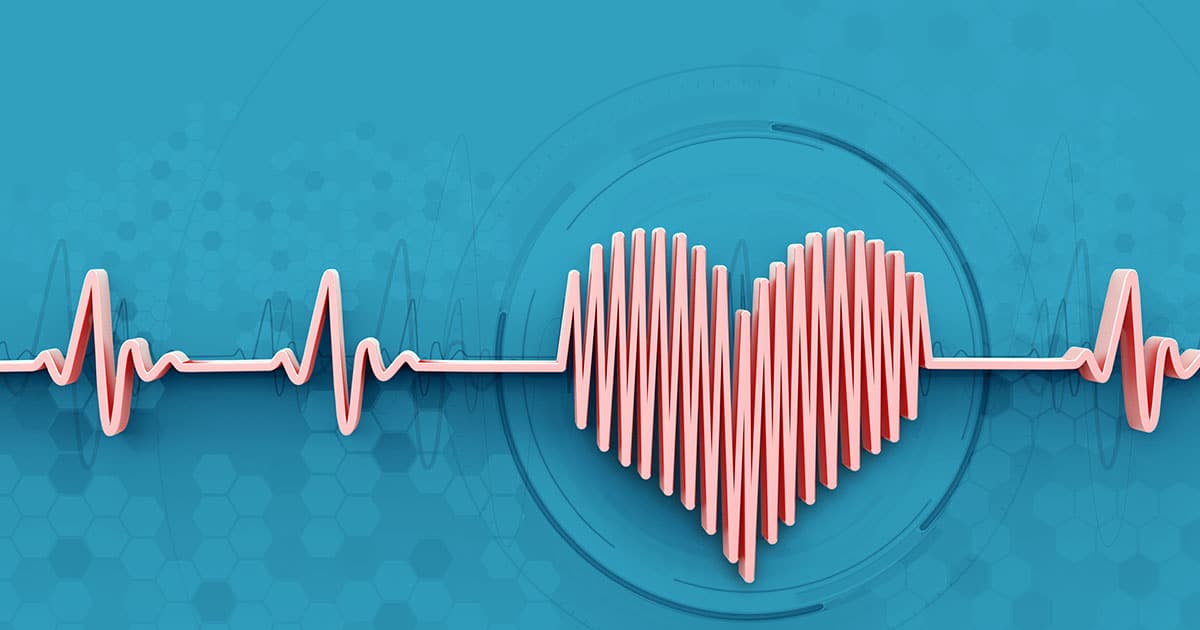Find the best healthcare program for you, with 12 popular specialisations.

Health courses are available from Australian universities via online and mixed-mode study. Graduates are employed in clinical, allied health, community and management roles. Some programs can be taken 100% online. For those that can’t, mixed-mode study is often an option.
Health Specialisations
Counselling is a popular study option for people who've worked in community care. Experience builds a knowledge base and helps you know if counselling is right for you.
For professional accreditation, you'll need a Bachelor of Counselling or equivalent degree. Alternatively, if you have a degree, you're eligible for a 2-year graduate diploma.
Counselling programs for professional accreditation include essential face-to-face classes where students learn practical skills. Work placements also give students opportunity to interact with counsellors and clients.
Health managers plan, administer, monitor and coordinate healthcare delivery. Studying health management develops knowledge and skills for administration and planning positions in hospitals and other health facilities.
To become a health manager, Australian universities offer online masters degrees and other postgraduate courses. You learn how to be an effective manager and gain credentials, such as an MHA, to compete for executive jobs.
Programs are available 100% online and are ideal for working professionals.
An MBA in Health Care is an opportunity to learn management techniques adapted for the health sector. You gain a leadership qualification designed for jobs in healthcare settings.
These MBA programs are available to university graduates from any field. Qualifications and professional experience in the health industry may be helpful for getting quick returns.
Online programs allow you to earn your degree part-time while working full-time. Australia's best versions of this degree are accelerated.
Medical science is the study of the human body and diseases, aiming to improve health and treatment outcomes. Fields range from anatomy and biochemistry to specialties like cardiology and genomics.
A Bachelor of Medical Science covers multiple medical disciplines, preparing students for specialisation. Topics include physiology, immunology, and molecular biology.
Postgraduate courses provide advanced training, leading to careers in clinical research, biomedical science, and healthcare administration.
Mental health occupational fields include in counselling, social work, nursing and psychology. By doing an online postgraduate course, you gain the skills to move into specialist roles.
Flexible study options are available for 100% online study. Part-time courses allow you to continue working.
You can gain mental health qualifications by completing courses such as a graduate certificate, graduate diploma or masters degree. Participants learn to understand mental health conditions and meet patient needs.
Degrees for nursing incorporate hands-on training and work placements as required. A Bachelor of Nursing degree allows you to become a Registered Nurse.
Whether you're new to university study, a graduate in another discipline, an enrolled nurse, or an RN, courses are available to meeting your learning and career goals.
When choosing a pre-registration program, on-campus nursing similations and clinical placements should be considered. Students spend 800+ hours in healthcare facilities during a 3-year bachelor degree for example.
For registered nurses, a popular first-choice for professional development is to do a Graduate Certificate in Nursing. The course is typically part of a masters program.
An advantage of the graduate certificate is that you can test a nursing masters program without a great commitment. A graduate certificate is 4 subjects only, and can be completed online in 8 months of part-time study.
Specialisations include advanced nursing, clinical nursing, critical care, leadership, mental health, and nurse education.
A Master of Nursing degree can you set up for career advancement or a career pivot into specialised nursing or management and administration.
Specialisations include advanced nursing, advanced practice, nursing education, emergency nursing, management, and mental health nursing.
With an online Masters in Nursing, you can earn your degree while working full-time. You also have the option to begin your studies with a graduate certificate course, allowing you to test the program before committing to a masters.
Qualify to be a nutritionist or dietitian by combining online study with practical training. In most major Australian cities, a university or college offers external units as part of a diploma or degree.
A certificate IV, diploma or bachelor degree in nutrition qualifies you for jobs in the food, health and weight management sectors. To be a dietitian, you need a bachelor or masters degree accredited by DAA.
Nutrition is a hands-on study area, meaning some parts may have to be done on campus.
Psychology is a popular study choice among arts, social science and science students and graduates. Online psychology courses are widely available.
A 3-year psychology degree is just the start if you aim to be a psychology researcher, registered psychologist or clinical psychologist. But it can lead to careers in related fields.
An honours year and postgraduate degree are normally required for professional positions. Because advanced degrees often involve clinical practice, distance education courses are multi-mode.
The welfare of the Australian community is the key concern in the public health field. Postgraduate courses are available online, from graduate certificates to masters degrees.
Public health courses prepare you for roles in healthcare and public service. Job title examples are program and policy officer, public health officer, public health nurse, and health promotion officer.
Students learn to manage community health, studying topics such as epidemiology, health promotion, biostatistics and social perspectives.
Social work degrees are available at both the undergraduate and postgraduate levels to qualify you to become a social worker.
The practical side of learning social work requires on-the-job experience. To become accredited, students put in around 1000 hours of work experience. Training includes placements in social welfare settings, which can be near where you live.
A Bachelor of Social Work degree requires 4 years of study and on-the-job learning. If you have a degree, you can do a 2-year Master of Social Work (Professional Qualifying).
FAQs
You may be surprised at how many different kinds of careers are available in the broader field of healthcare. Apart from health professionals on the front line, such as doctors, nurses and pharmacists, there are administration, health policy, research and technician roles. Here are examples of careers that typically require a university degree.
- Athletic trainer
- Biomedical engineer
- Clinical psychologist
- Dietitian
- Dentist
- Environmental health specialist
- Epidemiologist
- Exercise physiologist
- Genetic counselor
- Health coach
- Health educator
- Health informatics specialist
- Health policy analyst
- Health services manager
- Laboratory technician
- Medical doctor
- Medical laboratory scientist
- Medical technologist
- Nurse practitioner
- Nutritionist
- Occupational therapist
- Pharmacist
- Physical therapist
- Physician assistant
- Public health administrator
- Psychiatrist
- Radiologic technologist
- Recreation therapist
- Social worker
- Speech therapist
There are several ways you can increase your career opportunities in healthcare.
- Obtain advanced degrees or certifications. Many health careers require a bachelor degree, but some positions may require a masters or higher. Consider advanced education in your field to increase career opportunities.
- Gain experience. Some health and medical careers may require or prefer candidates with clinical experience. Consider volunteering or interning in a healthcare setting to gain hands-on experience and make yourself a more competitive candidate.
- Network. Networking can be a powerful tool in any industry, and healthcare is no exception. Attend conferences, join professional organisations, and make connections with others in your field.
- Stay up to date on industry trends. Keep abreast of current trends and developments by reading industry publications, attending continuing education courses, and participating in professional development opportunities.
- Be flexible. Consider positions in different healthcare settings or industries. This can increase your chances of finding a job and can also help you build a diverse skill set.
- Be open to relocation. Depending on the job market in your area, you may find more opportunities by relocating to a different region or country.
- Be proactive. Take the initiative to seek out new opportunities and don't be afraid to apply for positions even if you don't meet all of the requirements. Employers often value enthusiasm and a willingness to learn.
Yes, it is possible to do a health and social care course online in Australia. Many vocational education and training (VET) providers, as well as universities and other higher education institutions, offer online courses in the health and social care field.
Online courses can offer a flexible and convenient way to study, allowing you to complete coursework and assignments at your own pace from the comfort of your own home.
When considering an online course, research the provider and the course carefully to ensure that it meets your needs and goals. Look for course accreditation, as well as any relevant professional associations that may have endorsed the course. It is also a good idea to check whether the course is recognised by relevant industry bodies, as this can affect your ability to gain employment or advance your career.
There are a variety of Certificate IV courses available in the health field in Australia. Some examples include:
- Allied Health Assistance
- Disability
- Dental Assisting
- Health Administration
- Health Services Assistance
- Leisure and Health
- Massage Therapy
- Mental Health
- Nursing (Enrolled/Division 2 Nursing)
- Nutrition
These courses may be offered by vocational education and training (VET) providers, as well as universities and other higher education institutions. Research and compare different options to find a course that meets your career goals.
Recent Posts
-
Why Study Master of Advanced Nursing Practice? 2024-03-29
-
8 Masters of Nursing Online in Australia 2024-03-25
-
Top 3 MBA in Healthcare Management (Online) 2024-03-23
-
22 Postgraduate Nursing Courses Online 2024-03-19
-
Best Psychology Degrees Online in Australia 2024-03-15


















Social Work